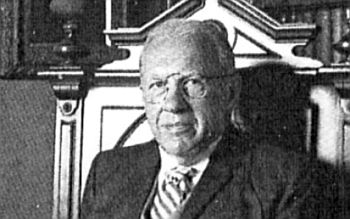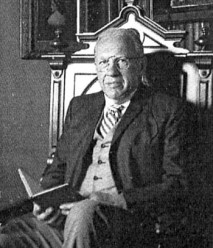July 26, 2011
 07/27/11 Another Hoosier literary legend associated with Lake Maxinkuckee will be celebrated Saturday, July 30, starting at 11 a.m., when James Whitcomb Riley (or, to be exact, performer Henry Ryder paying tribute to Riley in dress, style, and speech) visits the area.
07/27/11 Another Hoosier literary legend associated with Lake Maxinkuckee will be celebrated Saturday, July 30, starting at 11 a.m., when James Whitcomb Riley (or, to be exact, performer Henry Ryder paying tribute to Riley in dress, style, and speech) visits the area.
Riley (1849 – 1916) was one of America’s most beloved poets and speakers, and arguably Indiana’s most popular writer, particularly during his lifetime. Known as “The Hoosier Poet,” Riley’s most famous works include “When the Frost is on the Punkin” and “Little Orphant Annie,” the first introduction of the “Annie” character later made famous through comic strips, theater, and movies.
Riley was part of a group of Indiana’s most highly-regarded writers during a period known as “the golden age” of Hoosier literature (from the 1890s through the 1920s), along with Booth Tarkington and Meredith Nicholson, all of whom frequented Lake Maxinkuckee during and after this period.
In the collection of the Antiquarian and Historical Society of Culver, which is sponsoring the event, is a copy of a July, 1890 letter provided by Ted Schenberg of Culver, written by Riley encouraging its recipient to contact him “Care (of) Booth Tarkington — Maxinkuckee, Indiana.”
Tarkington frequented 1910 East Shore Drive, today the home of David and Ginny Gibson and the site of the July 30 program. Tarkington, in fact, signed the wall of the original cottage, a wall the Gibsons have retained in their 2010-built home on the site.
 Riley also penned a poetic tribute to Lake Maxinkuckee known as, “The Green Below and the Blue Above.” Among its lines: “The green below and the blue above/The waves caressing the shores they love; Sails in haven and sails afar/And faint as the water lilies are…The blue above and the green below/would that the world was always so; Always summer and warmth and light/With mirth and melody day and night…”
Riley also penned a poetic tribute to Lake Maxinkuckee known as, “The Green Below and the Blue Above.” Among its lines: “The green below and the blue above/The waves caressing the shores they love; Sails in haven and sails afar/And faint as the water lilies are…The blue above and the green below/would that the world was always so; Always summer and warmth and light/With mirth and melody day and night…”
Henry C. Ryder, of Spotlight Speakers and Entertainment of Carmel, will continue the role of Riley which has garnered him such positive reviews, and which he plays in period dress and adapting Riley’s poetic style and use of dialect.
“He has memorized much of the poetry of Riley and delivers it, in character, with great timing and showmanship,” wrote the Indianapolis Star of Ryder’s performance. “In his hands the material is as Riley meant it — at times funny, at times moving.
Ryder is a retired attorney with Barnes and Thornburg and is a trustee of the Indianapolis Symphony Orchestra, among many other activities.
The program is free and open to the public.